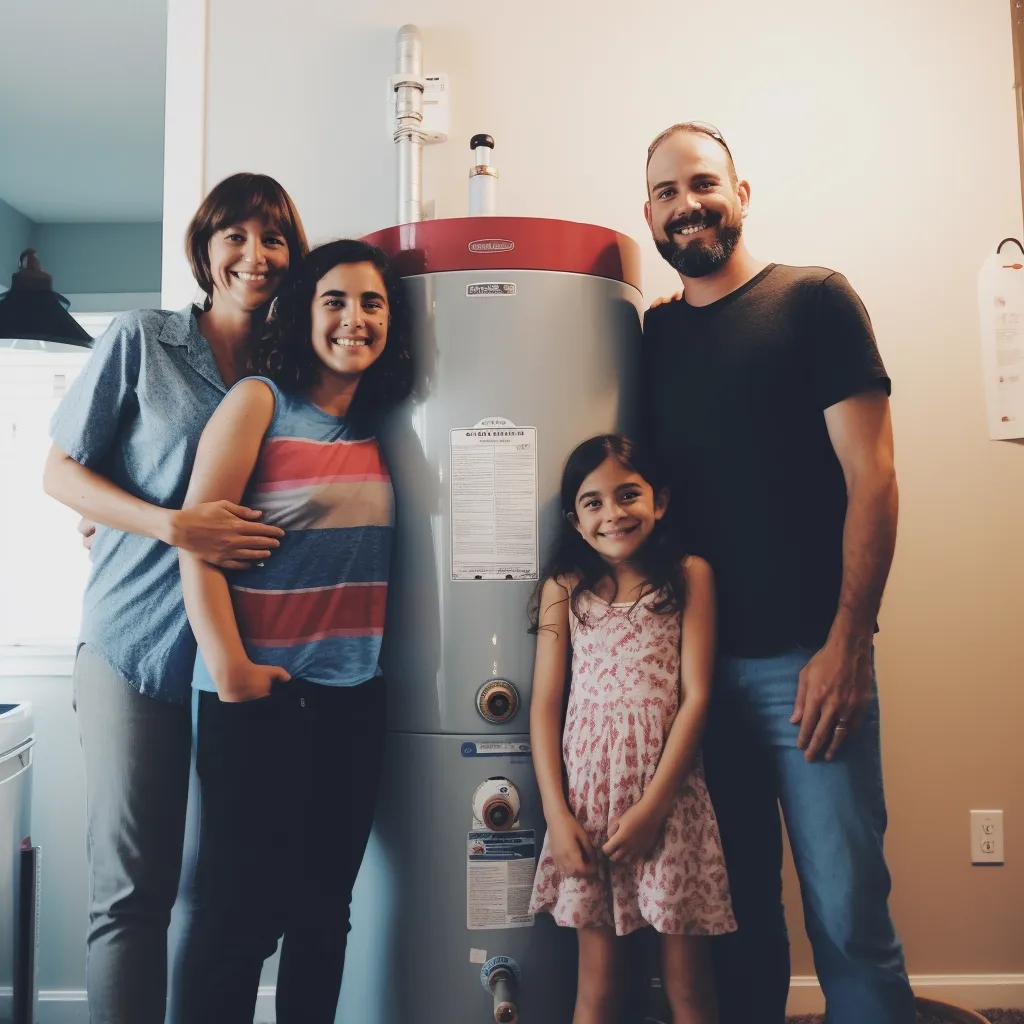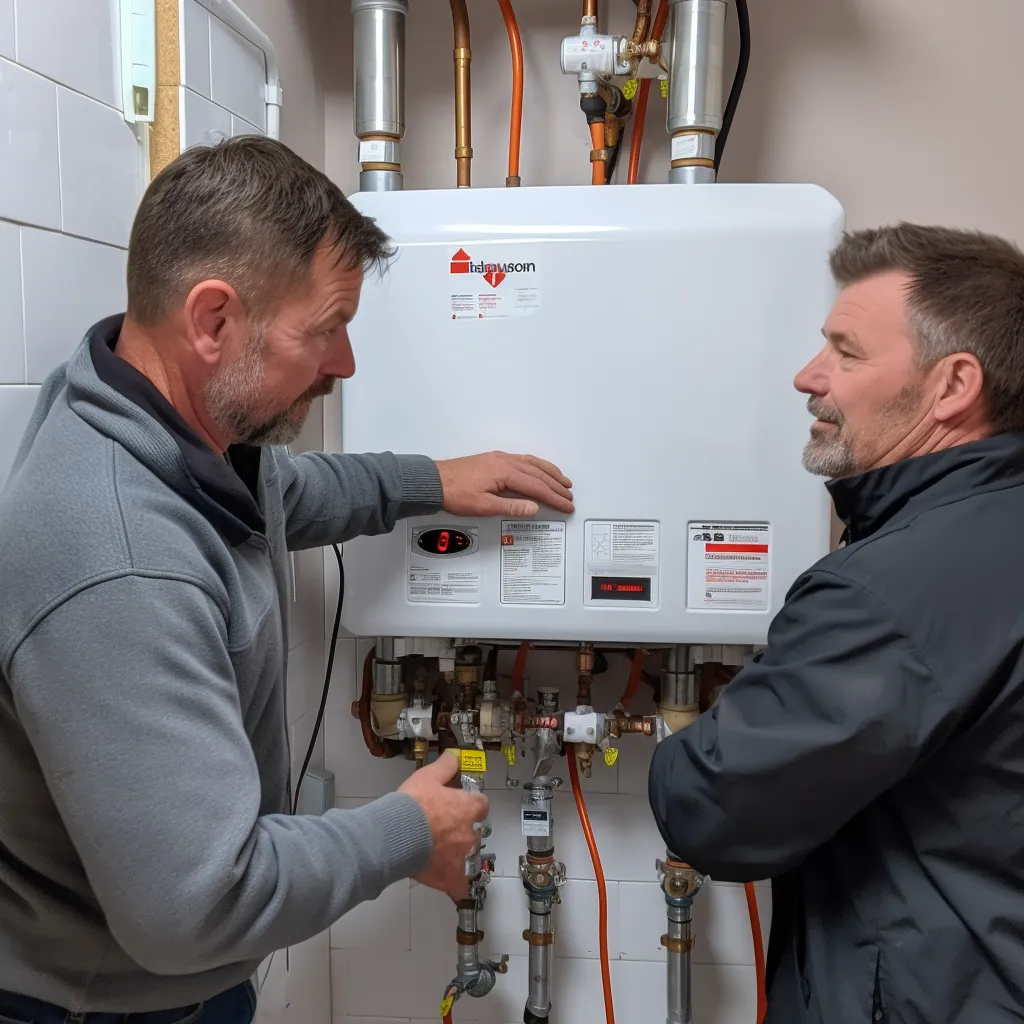Harnessing Solar Power for Hot Water: A Sustainable Solution

In the pursuit of eco-conscious and energy-efficient alternatives, solar water heaters have emerged as a beacon of hope in the realm of residential water heating. By tapping into the boundless energy of the sun, these systems offer a multitude of advantages, ranging from a reduced carbon footprint to significant savings on energy bills. In this all-encompassing guide, we will delve deep into the universe of solar water heaters, exploring their benefits, installation process, vital considerations when selecting one, available incentives and rebates, and the paramount importance of seeking professional guidance for a seamless transition to this sustainable heating solution.
The Benefits of Solar Water Heaters
Environmental Responsibility: Solar water heaters champion the cause of environmental stewardship. By harnessing solar energy, they dramatically curtail greenhouse gas emissions linked to conventional water heaters, contributing significantly to the fight against climate change and lessening your household's carbon footprint.
Energy and Financial Savings: Arguably the most compelling reason to switch to a solar water heater is the substantial reduction in energy costs. Traditional water heaters rely on electricity or gas, which can be prohibitively expensive. Conversely, solar energy is abundant and cost-free. Once your system is in place, you can enjoy hot water without worrying about soaring energy expenses.
Reliability and Minimal Maintenance: Solar water heaters are engineered for dependability and demand minimal maintenance. With proper care, these systems can endure for over two decades. Regular check-ups and maintenance ensure your solar water heater consistently provides hot water.
Energy Independence: Depending on solar energy for your hot water needs reduces reliance on external energy sources. This independence is especially advantageous during power outages, ensuring continuous access to hot water when you need it most.
Increased Property Value: Investing in a solar water heater can enhance the resale value of your home. Potential buyers increasingly seek energy-efficient features that promise long-term savings, making your property more appealing in the real estate market.
The Solar Water Heater Installation Process
Installing a solar water heater involves several key steps, but the rewards justify the effort. Here's an overview of the installation process:
Assessment and Planning: Before installation, a professional technician will evaluate your home's suitability for a solar water heater. Factors such as roof orientation, local climate, and available space will be taken into account. Based on this assessment, they will recommend the appropriate type and size of solar water heater for your requirements.
Solar Collector Installation: At the heart of a solar water heater system lies the solar collector, responsible for capturing sunlight and converting it into heat. Typically mounted on the roof or a ground-mounted frame in a sun-drenched location, this installation should be entrusted to a certified technician to ensure precise alignment and safety.
Water Tank Placement: The solar collector connects to a water tank that stores the heated water for use. This tank can be positioned inside your home, such as in a utility room or garage. The technician will also connect the tank to your existing plumbing system.
Plumbing and Control Configuration: The plumbing connections linking the solar collector, water tank, and your home's hot water system require meticulous configuration. Furthermore, a control system is installed to regulate the flow of heated water. These components demand professional installation to ensure both safety and efficiency.
Testing and Maintenance: Post-installation, the system undergoes thorough testing to ensure it functions correctly. Regular maintenance, including leak checks and system performance monitoring, is essential to maintain your solar water heater's peak efficiency.


Factors to Ponder When Choosing a Solar Water Heater Selecting the right solar water heater for your home is paramount to maximize its benefits. Here are key factors to consider:
Climate: Your local climate plays a pivotal role in determining a solar water heater's efficiency. In regions with abundant sunlight, like the southwestern United States, solar water heaters excel. However, they can still be effective in less sunny areas with the need for a larger system to compensate for reduced sunlight levels.
System Type: There are two primary types of solar water heaters: active and passive. Active systems use pumps for water circulation, while passive systems rely on natural convection. Active systems are generally more efficient but may require additional maintenance.
Tank Size: The water tank's size should align with your household's hot water consumption. A professional can assist you in determining the appropriate tank size to meet your needs.
Incentives and Rebates for Solar Water Heaters
Governments and utilities worldwide acknowledge the significance of transitioning to renewable energy sources, including solar water heaters. To incentivize homeowners, they often offer financial incentives and rebates. Here are common types of incentives:
Federal Tax Credits: In the United States, for instance, the federal government extends tax credits to homeowners who install solar water heaters. These credits can offset a substantial portion of the installation cost and lower your overall tax liability.
State and Local Rebates: Many states and municipalities also provide their incentives and rebates for solar water heaters. These incentives can vary, so it's crucial to inquire with your local government or utility to identify available programs in your area.
Solar Renewable Energy Certificates (SRECs): Certain regions offer programs that allow homeowners to earn Solar Renewable Energy Certificates (SRECs) for the solar energy they generate. These certificates can be sold to utilities, providing additional income for solar water heater owners.
The Significance of Consulting a Water Heater Professional
While the advantages of solar water heaters are evident, the installation process can be intricate and should not be taken lightly. Consulting with a water heater professional is essential for several reasons:
Expertise: Water heater professionals possess the knowledge and experience to evaluate your unique needs and recommend the appropriate solar water heater system. They can ensure the system is sized and installed for optimal efficiency.
Compliance: Professionals are well-versed in local building codes and regulations, guaranteeing that your solar water heater installation aligns with all relevant codes and safety standards.
Warranty Protection: Many solar water heater manufacturers stipulate professional installation as a prerequisite for warranty coverage. Collaborating with a professional safeguards your investment and provides peace of mind, knowing that potential issues will be addressed.
Longevity: Proper installation and maintenance by a professional can extend your solar water heater's lifespan, ensuring it continues to supply hot water efficiently for years to come.
Make the Transition Today
Solar water heaters offer a plethora of benefits, from environmental sustainability to substantial energy and financial savings. To reap these rewards, it's imperative to select the right system, enlist professional installation, and leverage available incentives and rebates. By consulting with a water heater professional, you embark on a journey toward energy independence while making a positive impact on the planet. Take the leap to solar water heaters today and begin harnessing the sun's power for all your hot water needs.

Contact Us
GET IN FULL TOUCH
PHONE: 615-671-4918
EMAIL:
steven@waterheatermurfreesboro.com
Rutherford Plumbing Heating & Cooling
Murfreesboro, TN 37128
